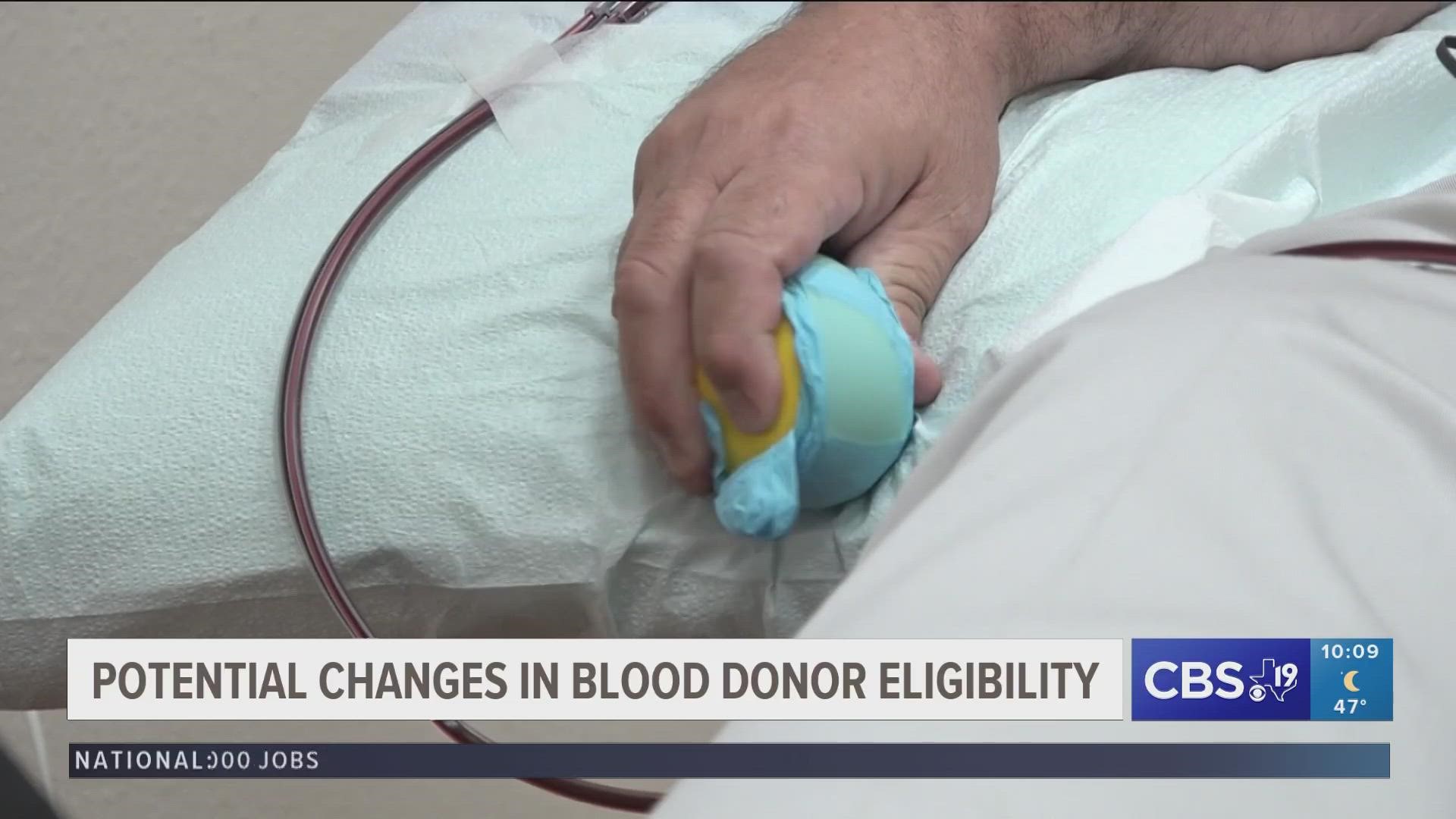TYLER, Texas — The U.S. government might make a move that saves lives and ends what critics call a decades-long policy of discrimination.
On Friday the U.S. Food & Drug Administration released a plan to change who’s eligible to donate blood. It would allow gay and bisexual men or people who take HIV preventative medication to donate.
"We were making this change because we believe that there will be no change to risk in the blood supply in terms of HIV, Hepatitis B or Hepatitis C," said Dr. Peter Marks, the director of the FDA Center of Biology Evaluation & research.
Under proposed new guidelines time-based deferrals for men who have sex with men would be eliminated. Opening up a new demographic of people who can donate blood.
"The FDA is looking at it and going into the individual risk assessment that they announced in the draft guidance today," said Clinton McCoy, director of mobile donor recruitment and regional operations at Carter Bloodcare: Tyler Donor Center. "This is kind of not step one, but maybe step 1.5 of changing up our questionnaire to be more inclusive, and allow people who have previously been deferred from donating to donate."
McCoy said the Tyler branch’s blood supply is improving compared to early in the pandemic, but the need for blood is constant.
"Right now we're really in need of donors who are (type) O Negative blood type," said McCoy. "It is a universal donor, the universal blood that can go to anybody in a hospital. So it's used in a lot of trauma accidents, and for people before they have an opportunity to type the patient's blood."
Jay Hilburn with Tyler Area Gays or TAG said this new proposal from the FDA is a step in the right direction.
"People will ask us to donate blood and I'm like, well, I can't because of my sexual orientation," said Hilburn. "It is kind of embarrassing and frustrating at the same time as well."
TAG hosts several events like Pride and the East Texas Rainbow Market, and if this proposal passes Hilburn said he would love to invite mobile blood drives to their events.
"I think that the people in our group would be happy to do it," said Hilburn.
The FDA said the agency recognizes that, while these draft recommendations, when finalized, will potentially increase the number of individuals eligible to donate blood.
"As more people move here we're going to need more blood to meet the patient needs," said McCoy. "So it's a great thing to be able to expand our donor base, still maintain a safe blood supply and then meet the new patient needs as people come to our area."
The U.S. and other countries started restricting gay men from donating blood during the aids epidemic of the 1980’s.
The FDA said it has carefully reviewed data from England and Canada which have already implemented this individual risk-based approach for assessing donor eligibility.
It will be at least two months before this plan could take effect.

